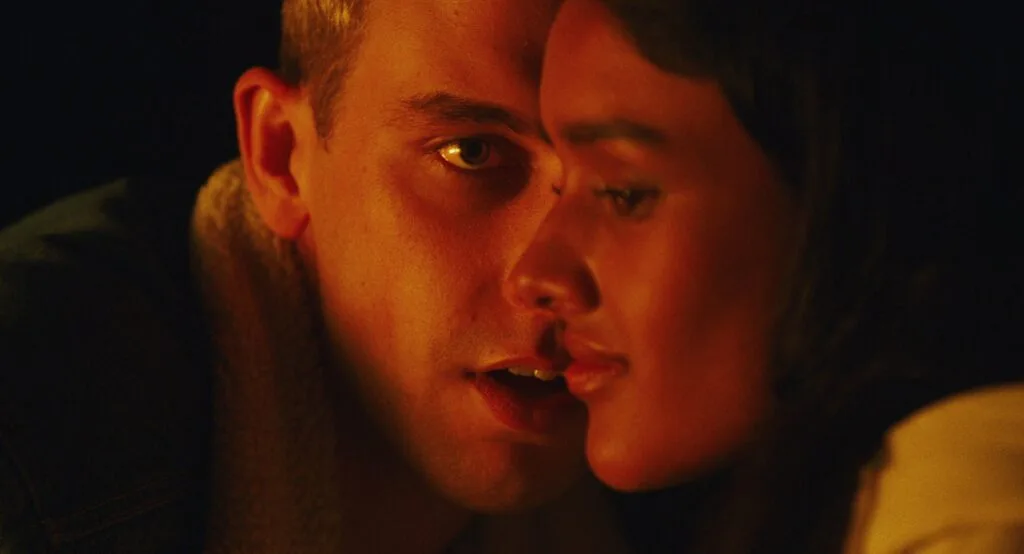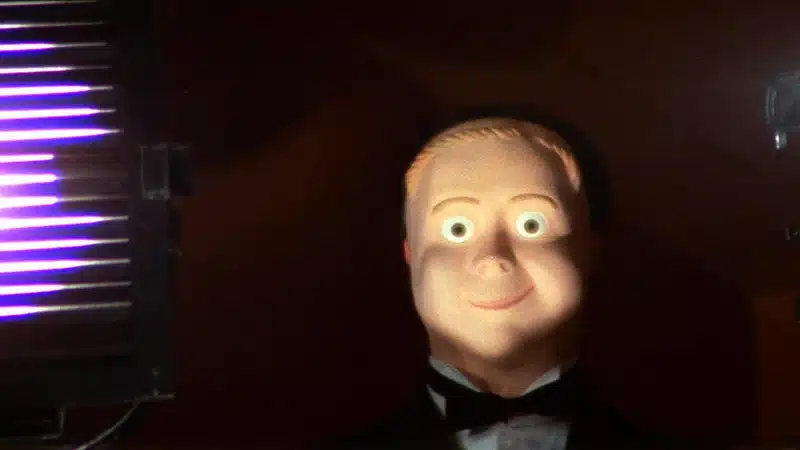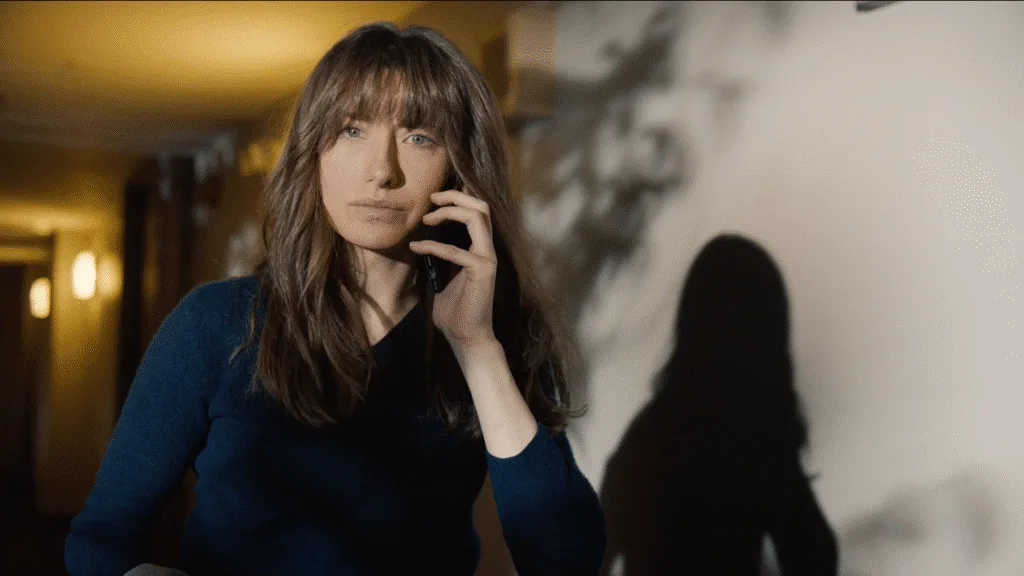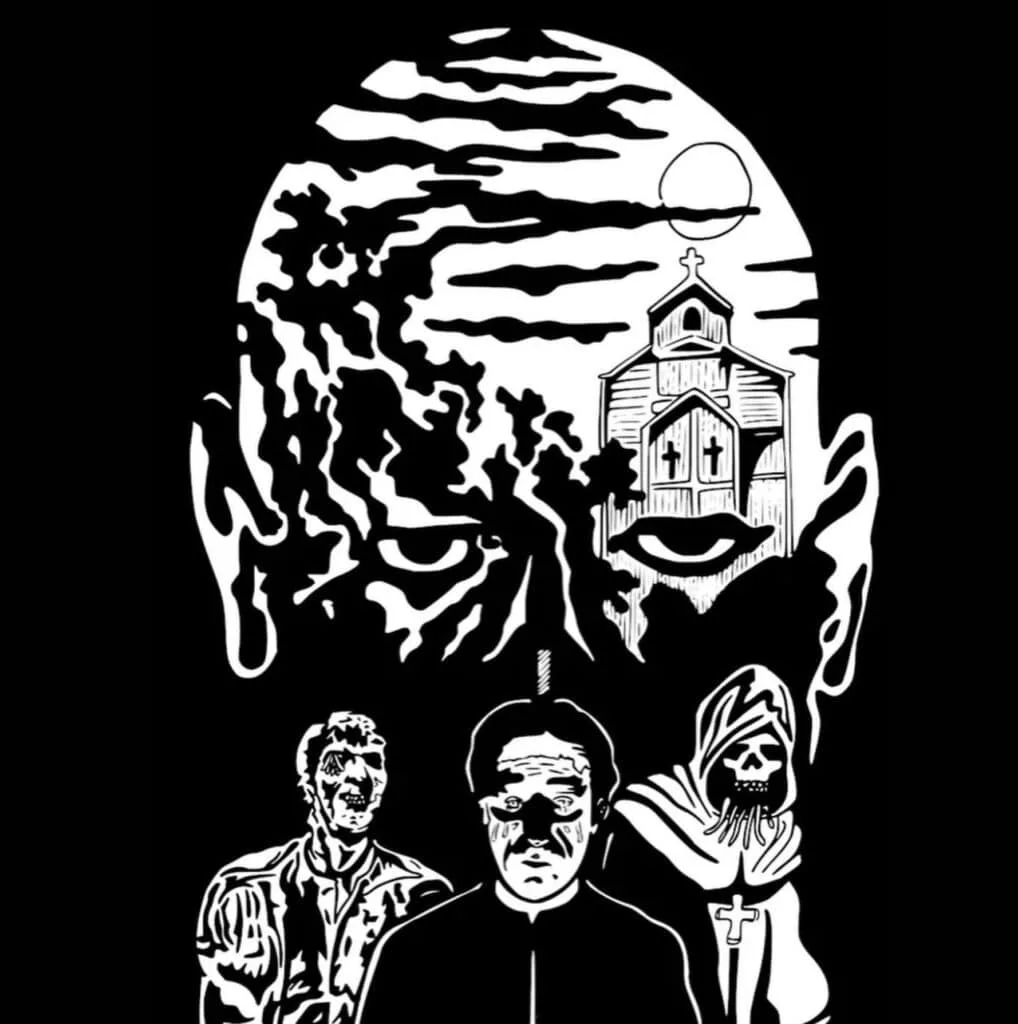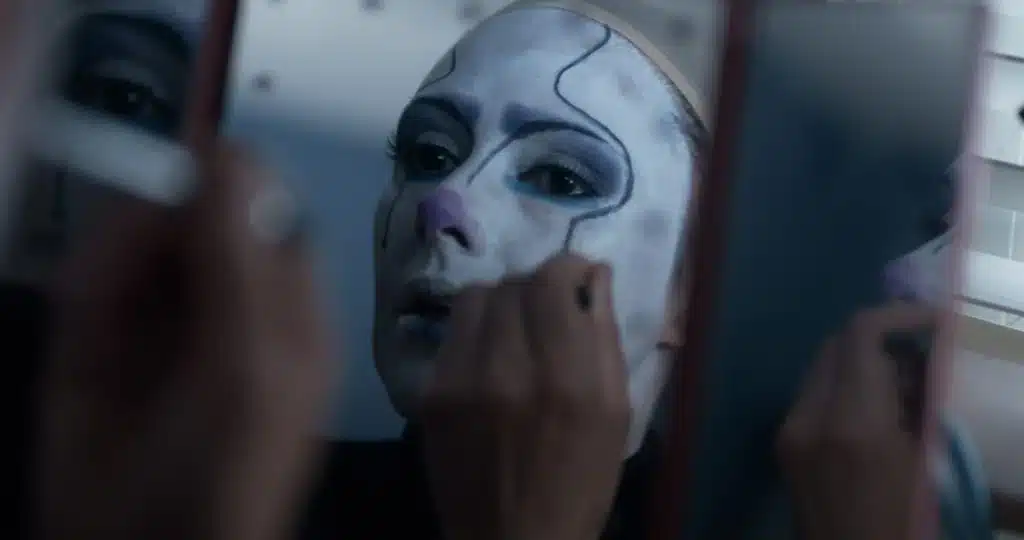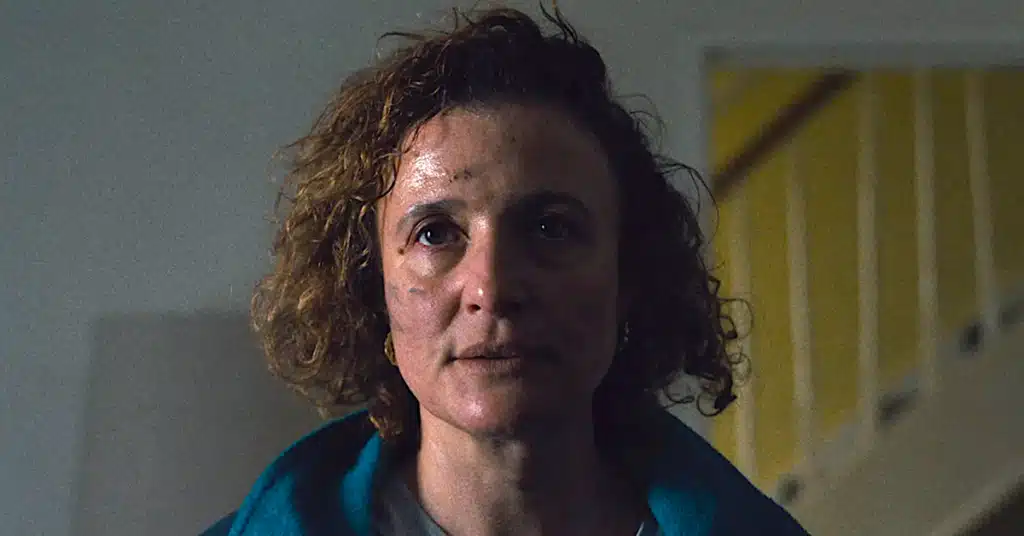
Restless (2024) is a domestic drama which, in places, edges close to the horror genre – with a few scenes and ideas which even suggest some ambitious horror genre-splicing. However, for the most part, it retreats into domestic drama, layering this with a psychological case study of a woman (described in the synopsis as an ’empty nester’) already on the edge, and pushed further and further by a sudden change in circumstances. There are some issues with Restless, but its lead actress is never in doubt, and one of its key strengths lies in showing just how quickly a lack of sleep can erode your sanity.
We begin at what seems clearly signposted as ‘four fifths of the way along’, a fairly popular structural feature in independent film of late which then leaves itself the rather tough job of linking up with the high tension moments of the opening scenes. We meet Nicky (Lyndsey Marshal), driving to the middle of nowhere in her PJs to dig a hole in the woods…then things move back by a week.
Just a week? Well, a week’s a long time in these situations. At this point, we find out more about Nicky: she’s a geriatric nurse; she has a lovely tabby cat (oh God, no); her son has recently headed off to university; and, as she watches a van arrive one morning, she’s a little perturbed to see new neighbours moving in next door, to the house recently owned by her parents. After her shift, she’s reminded of these new people by their blaring music and a party which goes on into the night. So she goes to speak to them.
There are some shades of Eden Lake here, in that the rather stereotypical neck tattoo, pitbull and love for all things hard techno might all combine in neighbour Deano (Aston McAuley), but he does seem amenable – at first. Obviously, these films would be rather short if one reasonable conversation sorted things out. The nightly noise continues, and Nicky gets less and less rational. Clues amass that, nightmare neighbours or not, she’s extra reactive just lately, and that we could be seeing someone losing their grasp. It’s so hard not to shout advice about earplugs (though she does get some headphones a bit later, and for reasons I’m not super clear on, takes them back off again, better to engage with the din.)
The week progresses. Nicky grows steadily more unhinged, and something’s gotta give…
Well, to a point. We’ve discussed how the film edges close to horror but doesn’t fully commit itself to horror; as such, there’s no sudden escalation into ultraviolence or some massive, culminating plot point, despite lots of signposting that things could well get there – which could feel somewhat deflating. In its determination to grant Nicky some peace, quiet and closure, the script steers clear of anything too damning. Perhaps it’s more keen to grant harassed neighbours some kind of wish fulfilment situation where things get resolved much more easily than they typically do, though the denouement feels rather bolted on – and could just as easily be the start of a new wave of escalation, frankly. This is one of the film’s issues, and another case where the 4/5 start point causes director/writer Jed Hart some difficulty.
The other issue is the film’s use of humour, particularly in the first half, which makes Restless feel like a tough call tonally. Having invested in the escalation of tension, the rather sudden-seeming diversion into moments of comedy is both surprising, and something which works against the atmosphere developed up to that point. It happens later, too, though it’s usually confined to the script by then, but the effect’s comparable. That said, Restless lands a few points about modern British life which will feel relatable: the whole ‘making ends meet’ thing, the issue of workplace understaffing, bureaucracy and buck-passing and of course, the paper-thin walls in a lot of terraced housing. It’s a familiar-feeling world.
Lyndsey Marshal is on screen for almost all of the film’s (modest and appropriate) ninety-minute runtime, and she does a very good job of carrying audience interest, particularly given that, for a lot of this time, she’s not actually speaking to anyone. Given that her mental state is already fraught at the beginning of the film, the tendency to film her sitting in almost total darkness also encourages a strong, often physical performance from her to convey that anguish laced with irritation which is so necessary to the part. There’s a certain amount of stereotyping along the way – of course an ’empty nester’ (coded as female, naturally) would have little to do except cleaning and frenetic cake-baking in her son’s absence – which does suggest a somewhat limited notion of what women do, think and feel. There are some aspects of characterisation which never quite feel fully-formed in this film, and this goes for Deano too, whom we properly need to believe is a dangerous wanker, but comes across mostly as a jovial wanker, right up until he turns out to be worse – although, we don’t get to know him in much depth, and the script has to be held responsible for that.
Despite these issues, though, it’s clear that Jed Hart has directorial nous for moving the action through a range of settings – domestic and exterior – and for allowing the space and time for a good cast to show just how well they can perform. It’s also appreciated that he’s told his story in a sensible, reasonable timeframe: were this film diluted down to two hours, the review would be a lot harsher. Restless shows us a recognisable and unpalatable slice of modern British life with plenty of visual flair, and whilst it loses its way in some aspects, for a first feature, it has key strengths to recommend it.
Quiver Distribution’s psychological thriller Restless was released digitally on Friday, May 23rd.
